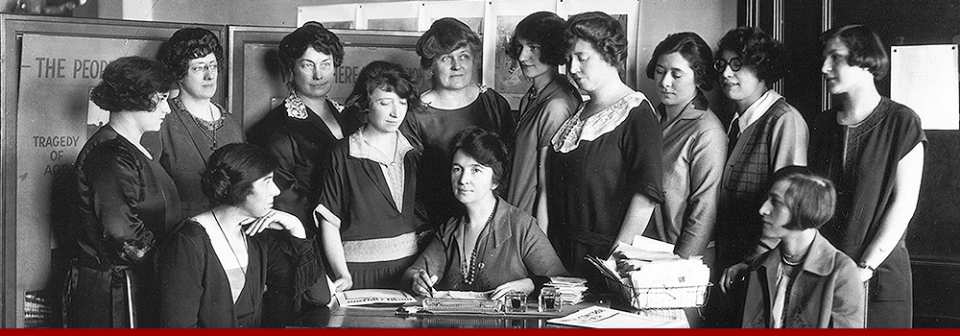Margaret Sanger opened the first birth control clinic in the U.S. 96 years ago on October 16, 1916 at 46 Amboy Street in the Brownsville section of Brooklyn, New York. Sanger, her sister Ethel Byrne, a registered nurse, and Fania Mindell, a volunteer interpreter from Chicago, rented a small store-front space in Brownsville and canvassed the area with flyers written in English, Yiddish and Italian proclaiming “Mothers, do not kill. do not take life, but prevent,” and advertising the services of a birth control clinic. Sanger modeled the Brownsville Clinic after the birth control clinics she had observed in Holland in 1915. For ten cents each woman received Sanger’s pamphlet What Every Girl Should Know, a short lecture on the female reproductive system, and instructions on the use of various contraceptives. The Clinic served more than 100 women on the first day and some 400 over the next few days.
The police monitored the Clinic from its opening and sent in a female undercover agent to purchase contraceptive supplies. On October 26 an undercover police woman and vice-squad officers raided the clinic, confiscated an assortment of contraceptives from pessaries to condoms, along with 20 “books on young women,” and arrested Sanger, Byrne and Mindell. After being arraigned, Sanger and Mindell spent the night in the Raymond Street jail, Byrne at the Liberty Avenue station. All were released the next morning on $500.00 bail.
Sanger claimed the “success of the clinic during the ten days before the raid by police showed that it is a wonderful boon to the poor women of that congested section of Brooklyn where all the people are poor and have no knowledge of the means to limit the size of their families. Hundreds of families of all nationalities came to the clinic for information.” (N.Y. Call, Nov. 13, 1916).
Sanger re-opened the Clinic on November 14, only to be arrested a second time and charged with maintaining a public nuisance. Undaunted, she opened the Clinic once again on November 16, but police forced the landlord to evict Sanger and her staff, and the Clinic closed its doors a final time.
Sanger’s fearlessness, determination and compassion would surely have attracted the attention of that growing group of male politicians seeking to curtail the rights of women and the needs of the poor. Too bad she is no longer around to fight for them.


Pingback: Orange Is The New Black (Ink)… | Scenarios and Strategy
Pingback: Orange Is The New Black (Ink)… | (Roughly) Daily
Pingback: “Adults are only kids grown up”*… | (Roughly) Daily
Pingback: “That most potent of all sheets of paper, the ballot”*… | (Roughly) Daily
Pingback: “Science is a way of thinking much more than it is a body of knowledge”*… | (Roughly) Daily